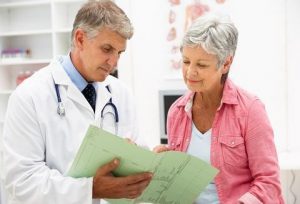Probiotics improve the metabolism of isoflavones in menopausal women.
This randomized clinical trial aimed to evaluate the effect of isoflavone administration, either in conjunction with probiotic use or not, on the symptoms of genitourinary syndrome of menopause, and compare the effects with those of hormone therapy, in 60 postmenopausal women aged 40 to 60 years, for 16 weeks.

Volunteers received oral isoflavone (150 mg dry extract of glycine max) alone or isoflavone plus probiotic (Lactobacillus acidophilus, Lactobacillus casei, Lactococcus lactis, Bifidobacterium bifidum, and Bifidobacterium lactis) or hormone therapy (1 mg estradiol and 0.5 mg norethisterone acetate).
There was a significant increase in the daidzein, glycitein, equol intermediate, and O-dimethylangolensin contents, after 16 weeks, in the isoflavone plus probiotic group. The vaginal health score increased in the isoflavone and hormone therapy groups.
Probiotics improved the metabolism of isoflavones after 16 weeks of treatment. However, the increase in the contents of isoflavones and their metabolites failed to yield an estrogenic effect on the urogenital tract and relieve the vulvovaginal symptoms.
Ribeiro AE, Monteiro NES, Moraes AVG, Costa-Paiva LH, Pedro AO. Can the use of probiotics in association with isoflavone improve the symptoms of genitourinary syndrome of menopause? Results from a randomized controlled trial. Menopause. 2018 Dec 10.
